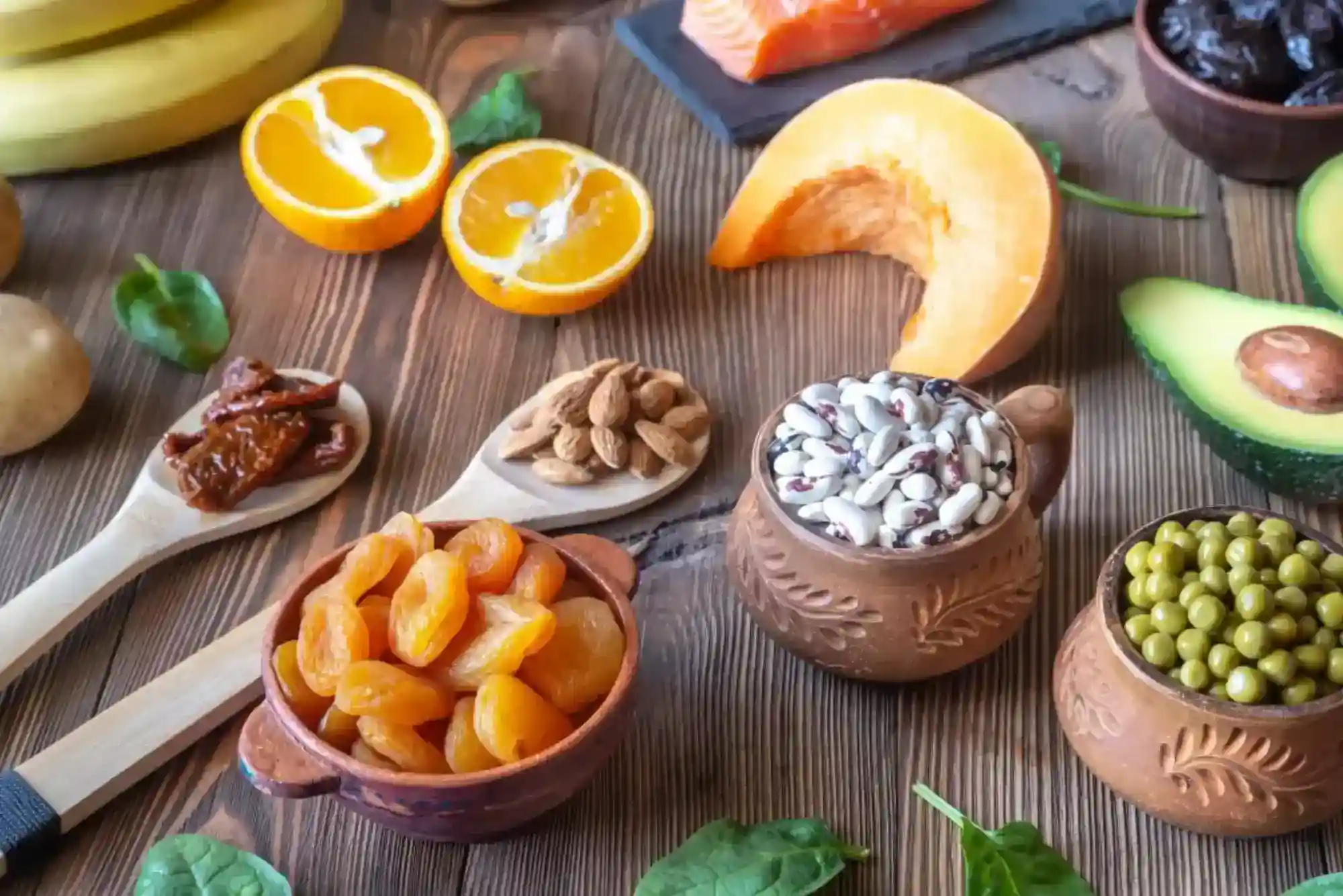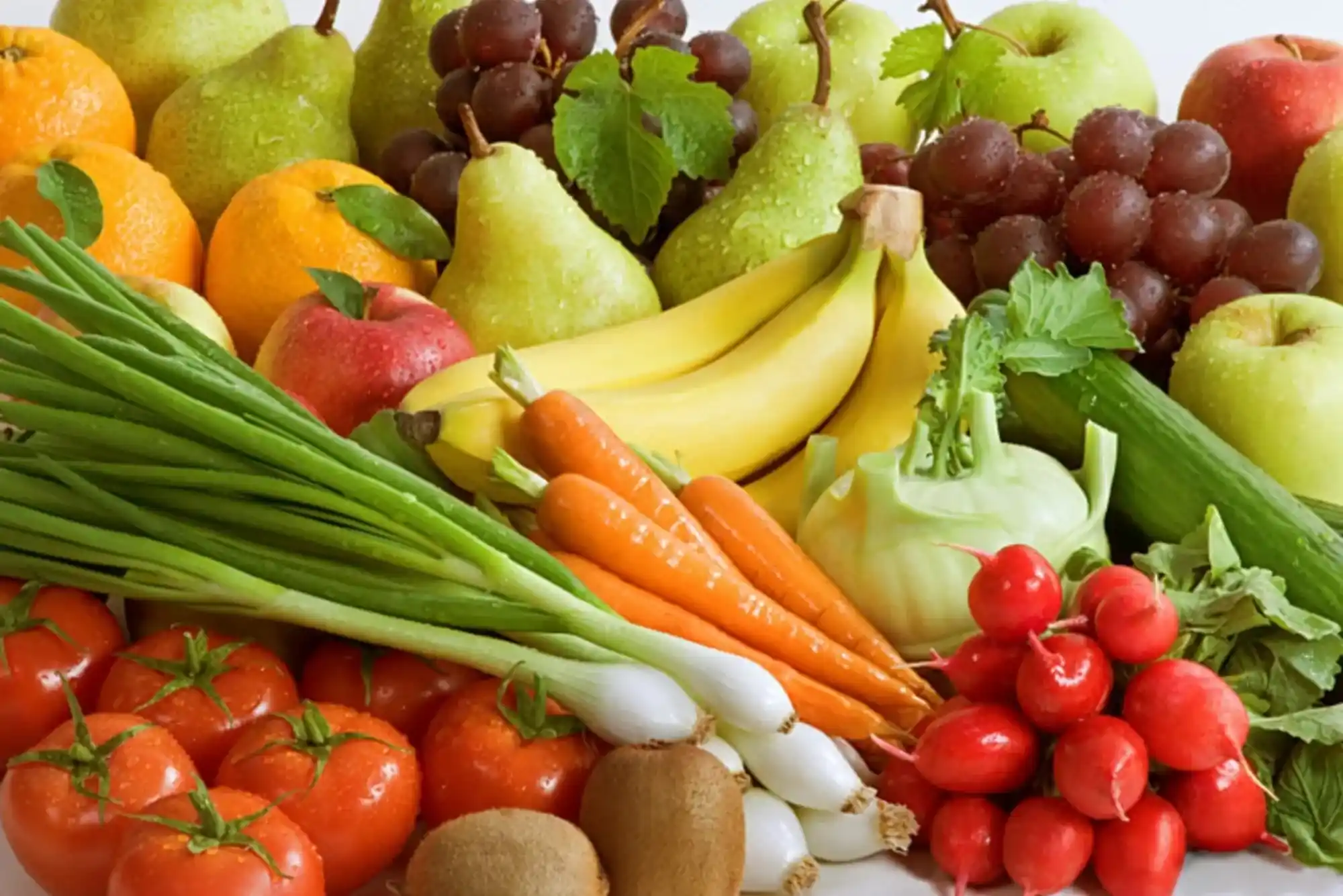Potassium is an essential mineral that plays a crucial role in maintaining various bodily functions. It is vital for fluid balance, muscle contractions, and nerve function. Despite its importance, many individuals do not consume enough potassium in their diets. Understanding which foods are high in potassium can help you improve your nutritional intake and enhance your overall health. This article will explore the foods rich in potassium, their benefits, and tips for incorporating them into your daily meals.
The Importance of Potassium
Potassium is a key nutrient that helps regulate several critical functions in the body. Here are some reasons why potassium is important:
Regulates Blood Pressure
Adequate potassium intake is linked to maintaining healthy blood pressure levels. Potassium helps balance sodium levels in the body, which is essential for controlling blood pressure. A diet rich in potassium can counteract the effects of sodium, potentially reducing the risk of hypertension.
Research shows that individuals who consume a high-potassium diet tend to have lower blood pressure compared to those who do not. This effect can be attributed to potassium’s ability to promote vasodilation, the process of blood vessel relaxation. Consequently, maintaining optimal potassium levels can support cardiovascular health.
Supports Muscle Function
Potassium is essential for muscle contractions and overall muscle function. It assists in transmitting nerve signals to the muscles, ensuring proper movement and coordination. Insufficient potassium can lead to muscle weakness, cramps, and even spasms, particularly during physical activity.
Athletes, in particular, must ensure adequate potassium intake to prevent muscle fatigue and cramping during intense workouts or competitions. Incorporating potassium-rich foods into their diet can enhance athletic performance and recovery.
Aids in Nutrient Absorption
Potassium is vital for nutrient absorption in the digestive system. It helps transport nutrients into cells, ensuring that the body effectively utilizes the vitamins and minerals consumed in food. A proper balance of potassium can enhance the absorption of nutrients like calcium, which is crucial for bone health.
By consuming potassium-rich foods, you can maximize your body’s ability to absorb essential nutrients and improve your overall nutritional status.
Supports Bone Health
Emerging research suggests that potassium may play a role in maintaining bone health. Potassium-rich foods help neutralize metabolic acids, which can contribute to bone loss over time. A diet high in potassium may support bone density and reduce the risk of osteoporosis.
Studies have shown that individuals with higher potassium intake tend to have a higher bone mineral density. By ensuring adequate potassium consumption, you can promote bone health and prevent age-related bone loss.
Foods High in Potassium

Several foods are excellent sources of potassium. Here’s a detailed look at potassium-rich foods that can be easily incorporated into your diet:
Fruits
Fruits are among the best sources of potassium. Here are some fruits high in potassium:
- Bananas: Known for their potassium content, bananas are a convenient and delicious snack. One medium banana contains around four hundred twenty-two milligrams of potassium. They are easy to carry and can be added to smoothies, cereal, or enjoyed on their own.
- Oranges: Not only are they rich in vitamin C, but oranges also provide approximately two hundred thirty-seven milligrams of potassium per medium orange. Oranges can be eaten fresh or juiced, making them versatile for various meals.
- Avocados: This creamy fruit is not only high in healthy fats but also contains around nine hundred seventy-five milligrams of potassium per avocado, making it one of the top sources of potassium. Avocados can be added to salads, spreads, or smoothies, enhancing both flavor and nutrition.
- Melons: Watermelon and cantaloupe are hydrating fruits that are also high in potassium. One cup of diced watermelon has about one hundred seventy milligrams, while cantaloupe offers around four hundred thirty-one milligrams per cup. These fruits make refreshing snacks and can be added to fruit salads or smoothies.
- Dried Fruits: Dried fruits like apricots, raisins, and prunes are concentrated sources of potassium. Just one cup of dried apricots can provide over one thousand five hundred milligrams of potassium. Dried fruits make great snacks or can be added to oatmeal, salads, or baked goods for added nutrition.
Vegetables
Vegetables are another excellent source of potassium. Incorporating a variety of vegetables into your meals can boost your potassium intake significantly:
- Sweet Potatoes: These nutritious tubers are packed with potassium, offering about five hundred forty-one milligrams per medium-sized sweet potato. They can be baked, mashed, or roasted, making them a versatile side dish.
- Spinach: This leafy green is a powerhouse of nutrients, providing around eight hundred thirty-nine milligrams of potassium per cooked cup. Spinach can be used in salads, smoothies, soups, or sautéed as a side dish.
- Potatoes: Regular white potatoes are also high in potassium, with one medium potato containing approximately nine hundred twenty-six milligrams when cooked with the skin on. Potatoes can be prepared in various ways, such as baking, boiling, or mashing.
- Beet Greens: Often overlooked, beet greens are a fantastic source of potassium, delivering around one thousand two hundred sixty milligrams per cooked cup. These greens can be sautéed or added to soups and stews for extra nutrition.
- Tomatoes: Whether fresh or in sauce form, tomatoes are high in potassium. A medium tomato has about two hundred ninety-two milligrams, while a cup of tomato sauce offers around one thousand fifty milligrams. Tomatoes can be used in salads, sauces, and soups.
Legumes
Legumes are not only a great source of protein but also provide significant amounts of potassium. Consider adding these to your meals:
- Lentils: One cup of cooked lentils contains around seven hundred thirty-one milligrams of potassium, making them an excellent choice for soups, salads, and stews. Lentils are a versatile ingredient and can be seasoned in various ways.
- Kidney Beans: A cup of cooked kidney beans has approximately six hundred seven milligrams of potassium, making them perfect for chili or bean salads. Kidney beans can also be mashed and used as a spread or dip.
- Chickpeas: Also known as garbanzo beans, chickpeas provide around four hundred seventy-seven milligrams of potassium per cooked cup. They are versatile and can be used in salads, hummus, or curries.
Dairy Products
Dairy products are a good source of potassium and can be easily incorporated into various meals:
- Yogurt: A serving of plain yogurt contains about five hundred seventy-three milligrams of potassium. Greek yogurt is especially high in potassium and protein. Yogurt can be eaten alone, added to smoothies, or used in dressings and dips.
- Milk: Both whole and low-fat milk are excellent sources of potassium, providing around three hundred sixty-six milligrams per cup. Milk can be consumed as a beverage or used in cooking and baking.
- Cheese: While cheese is often lower in potassium than other dairy products, some varieties, like mozzarella, provide around one hundred eighty milligrams of potassium per ounce. Cheese can be added to various dishes for flavor and nutrition.
Fish and Meat
Certain types of fish and meat also contain substantial amounts of potassium:
- Salmon: This fatty fish is not only rich in omega-3 fatty acids but also provides around five hundred thirty-four milligrams of potassium per three-ounce serving. Salmon can be grilled, baked, or added to salads.
- Chicken Breast: Skinless, boneless chicken breast offers approximately two hundred fifty-six milligrams of potassium per three-ounce serving, making it a healthy protein choice. Chicken can be prepared in various ways, including grilling, roasting, or stir-frying.
- Pork: Lean cuts of pork, such as tenderloin, are high in potassium, with around four hundred four milligrams per three-ounce serving. Pork can be grilled, roasted, or used in stews and casseroles.
Tips for Increasing Potassium Intake
Incorporating potassium-rich foods into your diet can be simple and delicious. Here are some tips to help you increase your potassium intake:
Plan Balanced Meals
When planning your meals, aim to include a variety of fruits and vegetables, legumes, and whole grains. This approach will help you meet your potassium needs while also ensuring a well-rounded diet.
Consider creating a meal plan that emphasizes potassium-rich foods. For example, you can start your day with a banana and yogurt, enjoy a salad with spinach and avocado for lunch, and have a dinner featuring baked sweet potatoes and grilled salmon.
Snack Smart
Choose potassium-rich snacks instead of processed options. Fresh fruits, yogurt, or a handful of nuts can provide a significant potassium boost while satisfying your hunger.
Keep potassium-rich snacks on hand for quick and healthy options. Pack a bag of dried apricots or sliced cucumbers with hummus to have on-the-go snacks that contribute to your potassium intake.
Experiment with Cooking Methods
Try different cooking methods to enhance the flavor and texture of potassium-rich foods. Roasting sweet potatoes, sautéing spinach, or grilling fish can make these foods more appealing.
Explore new recipes that feature potassium-rich ingredients. For instance, you can try making a spinach and avocado salad with a lemon vinaigrette or create a hearty lentil soup loaded with vegetables.
Incorporate Potassium-Rich Ingredients
 Add potassium-rich ingredients to your favorite recipes. For example, toss sliced bananas into your morning oatmeal, blend spinach into smoothies, or add beans to soups and salads.
Add potassium-rich ingredients to your favorite recipes. For example, toss sliced bananas into your morning oatmeal, blend spinach into smoothies, or add beans to soups and salads.
When baking, consider using mashed bananas or applesauce as a natural sweetener in muffins and breads. This not only boosts potassium content but also adds moisture and flavor.
Monitor Your Intake
If you’re concerned about your potassium levels, consider keeping a food diary to track your intake. This practice can help you identify areas where you may need to improve and ensure you’re meeting your nutritional needs.
Consulting with a registered dietitian can also provide personalized guidance on optimizing your potassium intake and overall diet. They can help you develop a meal plan that aligns with your health goals and dietary preferences.
Potential Risks of Excess Potassium
While potassium is essential for health, it is important to maintain a balanced intake. Excessive potassium levels, known as hyperkalemia, can lead to serious health issues, particularly for individuals with kidney problems.
Kidneys help regulate potassium levels in the body, and if they are not functioning properly, potassium can accumulate to dangerous levels. Symptoms of hyperkalemia may include fatigue, weakness, palpitations, and muscle cramps.
If you have a medical condition that affects potassium regulation, such as kidney disease, consult with your healthcare provider about your dietary potassium intake. They may recommend limiting high-potassium foods to prevent complications.
Potassium is an essential mineral that supports various bodily functions, including muscle health, blood pressure regulation, and nutrient absorption. By incorporating potassium-rich foods into your diet, you can enhance your overall health and well-being.
Remember to include a variety of fruits, vegetables, legumes, dairy products, and lean proteins to ensure you’re meeting your potassium needs. With a little planning and creativity in the kitchen, you can easily enjoy the benefits of this vital nutrient in your daily meals. Prioritizing potassium in your diet can lead to improved health outcomes and a better quality of life.
By focusing on foods high in potassium and understanding their benefits, you can take proactive steps toward better health. This mineral is not just essential for maintaining basic bodily functions but also plays a role in long-term health and vitality.
Ultimately, a diet rich in potassium can support your overall health and well-being. Make the effort to incorporate these foods into your meals, and enjoy the positive impact on your health that comes from consuming this vital nutrient.






